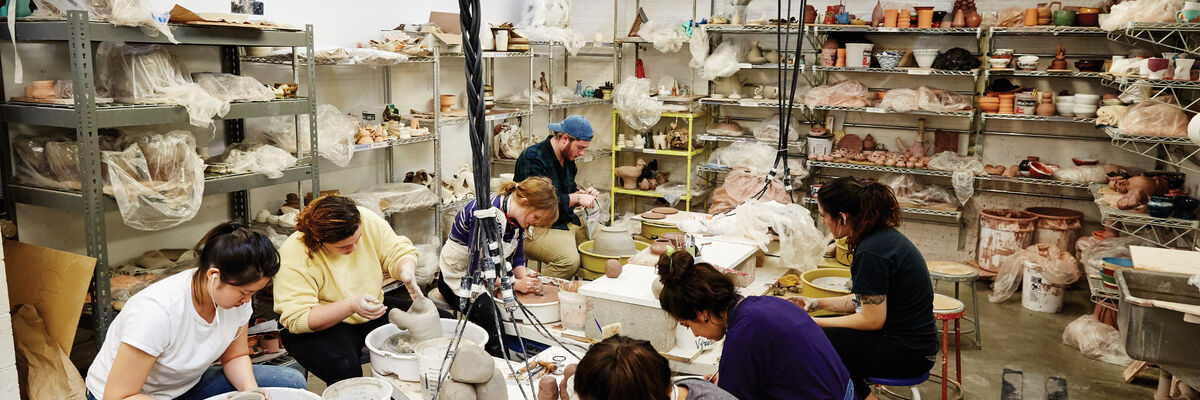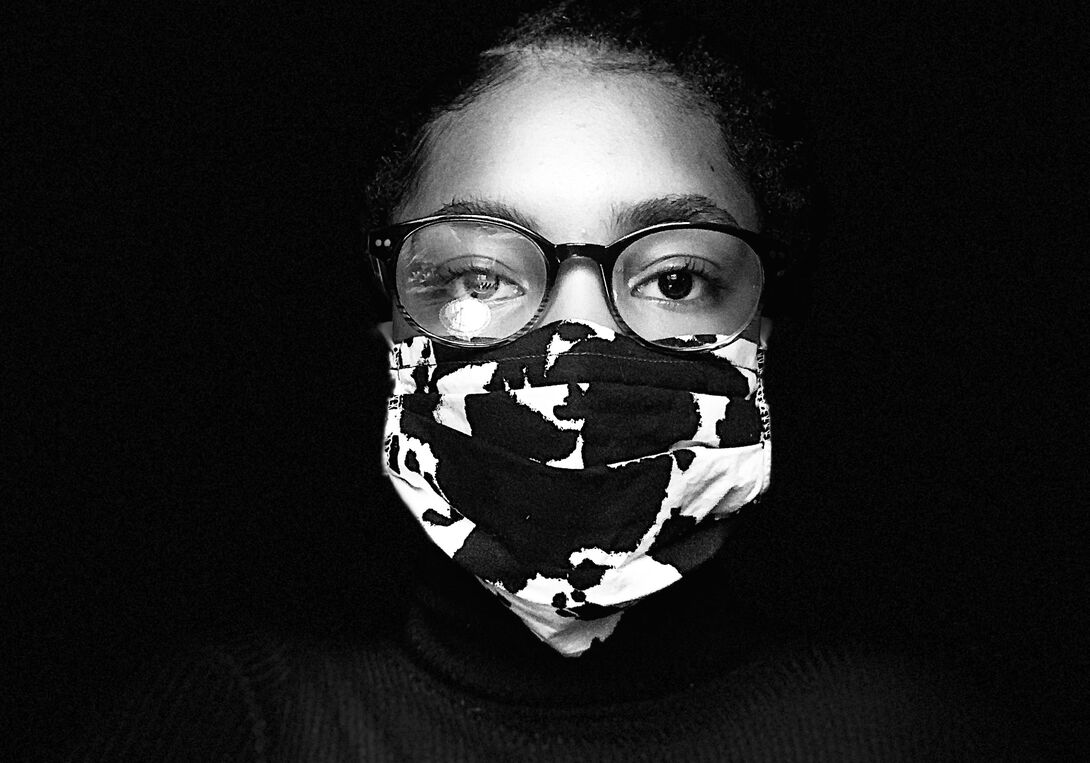
Student Brejenn Allen’s Hospital Gowns and Masks Bring Joy to Essential Workers

When Brejenn Allen was 13, her father suffered a major stroke. To help care for him, her mother decided that Allen and her siblings would need to be homeschooled. “Growing up, I spent most of my time in the hospital,” said Allen, an undergraduate student at the School of the Art Institute of Chicago (SAIC). She tried to find ways to cheer her father up during his stays, and one day, she noted how depressed he became whenever he had to wear a hospital gown. It never fit him correctly, and he never felt like himself. “I came up with this idea to go to a fabric store and get the funkiest, wackiest prints I could find and design a gown that would be slanted at the back so it would be more comfortable,” Allen said. “He loved it, and doctors and other patients saw the gown and wanted ones of their own.”
From this one hospital gown, Happy P’Jappies was born. While Allen was in high school, the entire business was conducted through word of mouth, with Allen producing a couple of dozen gowns per year. “A lot of people who wanted the gowns couldn’t afford to pay for them, so we decided to donate most of them, and then any profits we did make went right back into the business so we could give more away,” Allen said. Currently, over 80 percent of Happy P’Jappies gowns are donated.
When Allen enrolled at SAIC, the business started to take off. Inspired by her Arts Administration classes, she launched a website and social media accounts, and requests for gowns started to come in from across the country. To help with production, Allen enlisted her family, including her mom, brothers, and sisters. Everyone helps to sew, and her sisters manage the social accounts. It’s a true family effort.
During the pandemic, the demand for Allen’s gowns and masks has skyrocketed, and her family is producing hundreds per week. “We’re working with hospitals and grocery stores, trying to get these into the hands of essential workers,” Allen said. When they faced an elastic shortage, Allen and her mother got creative, rolling and sewing together Lycra bands. “Nurses contact us saying they’re so comfortable. They have to wear these masks all day, and the elastic really hurts their ears,” Allen said.
During a time of crisis, Allen is happy to know that her masks and gowns not only help protect patients and essential workers, but also bring them joy. “Getting to hear people’s stories, getting to see first responders posting on Facebook with their masks, when I see these pictures, I cry,” Allen said. “It’s a lot to balance with my coursework––I’m graduating this year––but it helps me to know we’re making a difference.”
